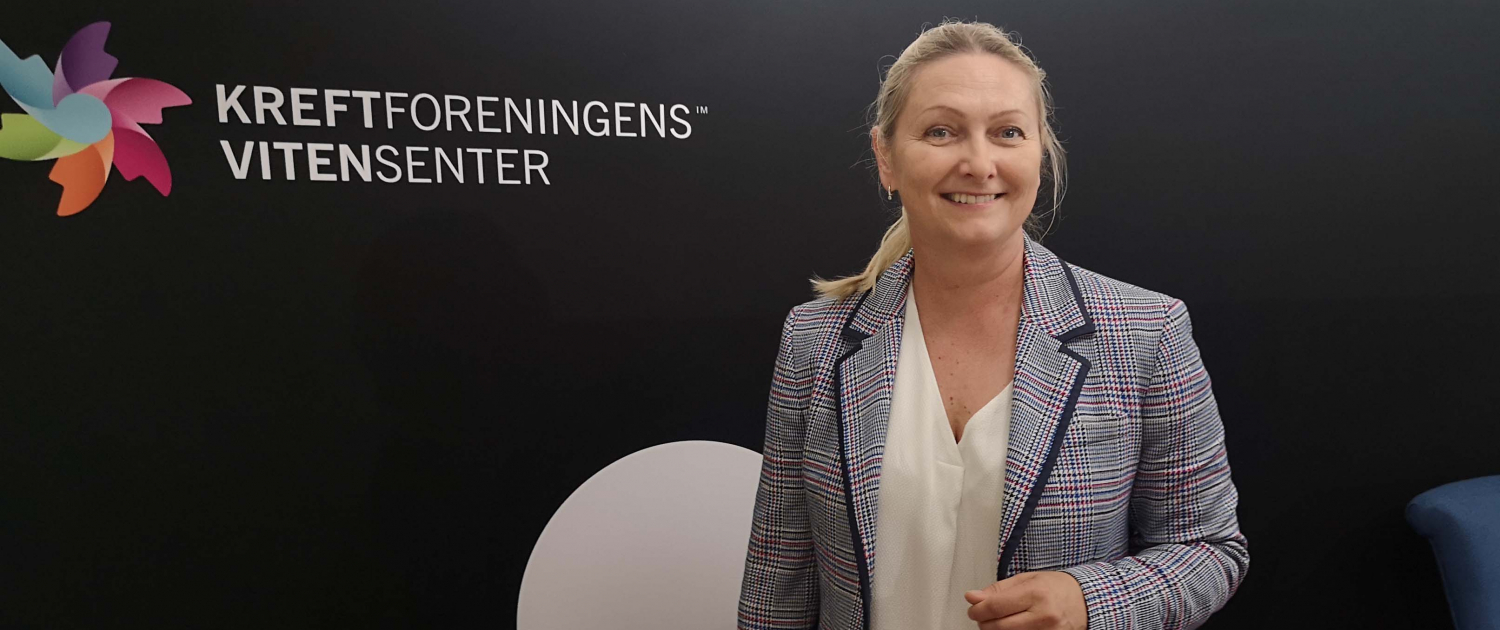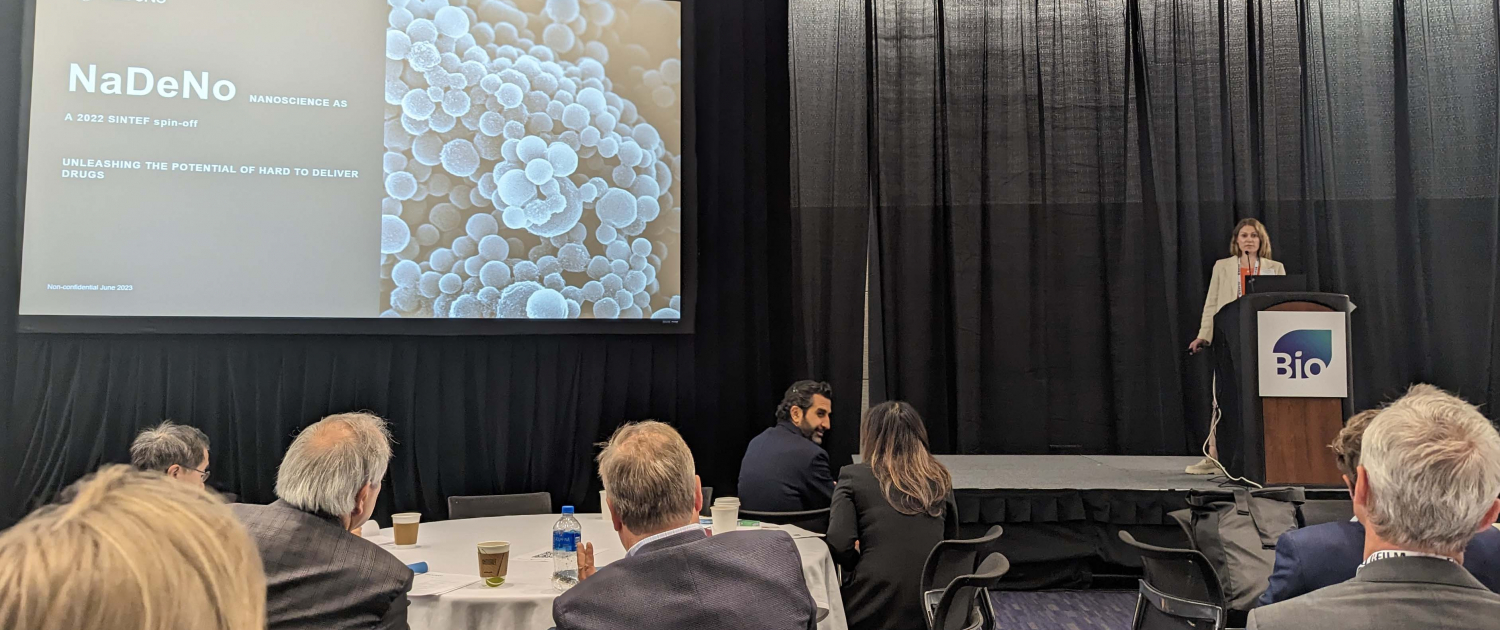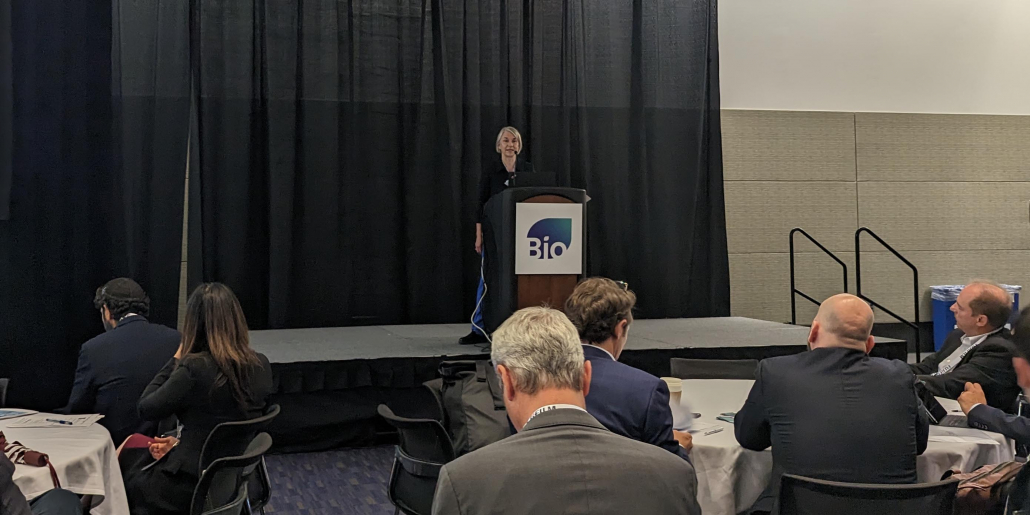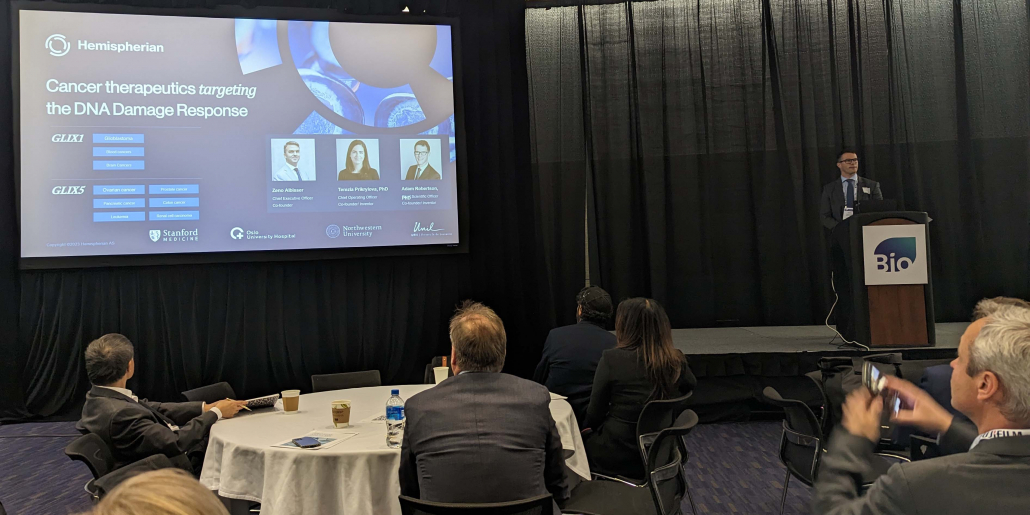Arendalsuka 2023
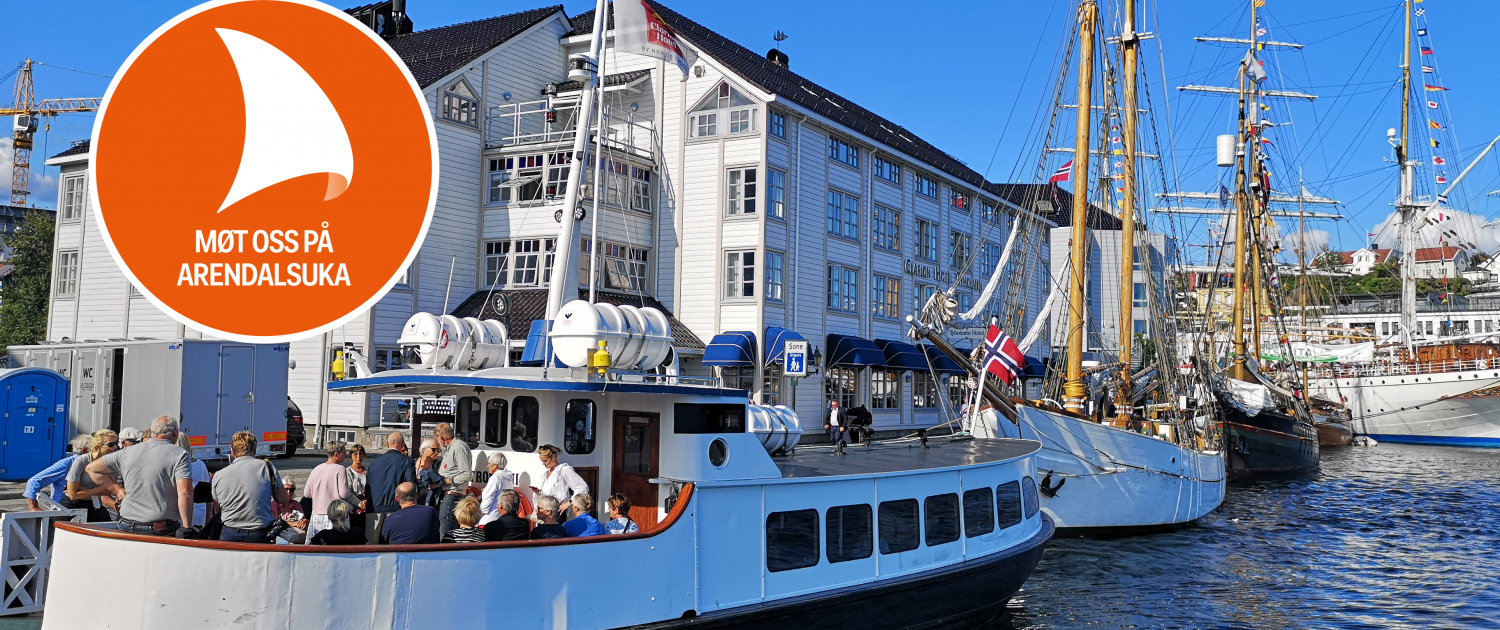
Møt oss i Arendal! Vi skal sette kreftinnovasjon på den politiske dagsorden!
Våre arrangementer streames direkte via vår YouTube-kanal @OsloCancerCluster.
Fremtidens kreftbehandling
Tirsdag 15. august, kl. 08.00-09.00, Clarion Hotel Tyholmen Sal A
Velkommen til frokostseminar om samfunnsoppdraget kreft.
Hvert år får 3,5 millioner europeere diagnosen kreft. Om utviklingen fortsetter, vil tallet være 4,3 millioner i 2035. Kreft er i dag den vanligste dødsårsaken i Norge og i flere europeiske land. Utfordringen på kreftområdet er med andre ord formidabel – og økende. Nettopp derfor har EU definert kreft som en av fem store samfunnsutfordringer, som har fått sine tilsvarende målrettede samfunnsoppdrag, såkalte missions. Disse oppdragene skal føre til løsningsforslag på vår tids største utfordringer innen miljø, klima og kreft.
Hvordan kan vi best lykkes med et samfunnsoppdrag på kreft i Norge? Hva har helsenæring og eksport med et samfunnsoppdrag på kreft å gjøre? Og er det ønskelig fra politisk hold å bruke missions som metode? Dette er sentrale spørsmål vi vil debattere med politikere og samfunnsaktører under dette frokostseminaret i møteserien Fremtidens kreftbehandling.
Medisinsk innovasjon etter Inflation Reduction Act
Tirsdag 15. august, kl. 14.30-15.30, Clarion Hotel Tyholmen Sal A
Hvordan vil USAs enorme støttepakke til egen industri påvirke medisinsk innovasjon i Europa og Norge?
Amerikanerne har lansert en støttepakke til egen industri, kalt Inflation Reduction Act. Denne vil påvirke investeringer i forskning og innovasjon i USA, og få ringvirkninger for Europa og Norge.
Inflation Reduction Act, som ble vedtatt i amerikansk lov i fjor, skal få fart på det grønne skiftet og redusere inflasjonen i USA. Men kommentatorer peker på at det vel så mye er en gigantisk pakke for å hente industri og arbeidsplasser hjem, blant annet gjennom subsidier. I pakken kommer også en rekke tiltak som påvirker utvikling av legemidler. Blant annet har flere legemiddelselskaper uttrykt bekymring for en betydelig usikkerhet knyttet til investeringer i forskning og utvikling, og at flere fremtidige kliniske studier kan bli satt på pause.
Hvordan skal Europa og Norge svare på dette?
Historisk har Europa vært ledende på medisinsk innovasjon, men de siste tjue årene har vi falt etter USA. I 2002 var forskjellen mellom investeringer i forskning og utvikling i helseteknologi mellom USA og Europa på 2 milliarder euro, og i dag har denne forskjellen blitt 25 milliarder euro. På tross av dette er Europa i en unik situasjon til å ta over lederrollen innen medisinsk innovasjon, med et helsevesen i verdensklasse, og en lang historie innen forskning og utvikling. Når USA nå satser tungt på egen industri, er det en mulighet for Europa til å intensivere sin egen innovasjonskraft innen helse.
Medisinsk innovasjon er avhengig av et levende økosystem mellom private aktører, helsetjenester og akademia. Derfor vil vi invitere aktører fra det norske økosystemet for å diskutere hvordan Europa, inkludert Norge, skal svare på den globale utviklingen som USA nå dytter framover med sin nasjonale støttepakke.
Arrangører: Oslo Cancer Cluster, Abbvie, Photocure
The Future of Digital Health in Norway: Leading the Way
Onsdag 16. august, kl. 13.30-14.30, Rygerelektra
Digital solutions offer significant potential to enhance healthcare delivery and innovation for Norwegian businesses. Despite a multitude of available apps, global downloads, and opportunities, many healthcare systems struggle with effective utilization due to trust issues and market complexity. This event highlights successful European cases, aiming to inspire Norway to become a pioneer in secure and impactful digital healthcare solutions.
Agenda:
13:30 – Introduction and Moderation Presented by Stephen McAdam from DNV
13:35 – Norges strategi for implementering av digitale helse teknologier Presented by Lucie Aunan, Divisjonsdirektør at Direktoratet for eHelse (Presentation in Norwegian)
13:40 – The Importance of Certification for Norwegian Municipalities Presented by Terje Wistner, Director ehealth at KS
13:45 – Sleepio: Experience from the UK and Other Countries (Video)
13:48 – A European Perspective: What’s Working and What’s Not Presented by Liz Ashall Payne, CEO and Founder of Orcha
14:00 – Challenges of Implementing Digital Solutions in Norway Presented by Solvor Øverlien Magi, CEO of Lifeness
14:07 – Round Table Discussion Participants: KS, Lifeness, Orcha, CEO of Norwegian Smart Care Cluster Arild Kristensen representing Norwegian Health clusters
14:25 – Summarizing Comments Presented by Stephen McAdam
14:30 – Closing Remarks
Arrangører: Oslo Cancer Cluster, Norway Health Tech, Norwegian Smart Care Cluster, The Life Science Cluster, DNV
Kan persontilpasset medisin bidra til å løse ressurskrisen i helsetjenesten?
Onsdag 16. august, kl. 16.30-17.30, Clarion Hotel Tyholmen Sal A
Konsortiet CONNECT inviterer til diskusjon om persontilpasset medisin i lys av ressurskrisen i helsetjenestene.
Hva er de største ressursutfordringene helsetjenesten står overfor – og hvordan kan persontilpasset medisin bidra til å løse disse?
I løpet av denne timen tar vi på oss fremtidsbrillene. Vi ser på hva den nye strategien for persontilpasset medisin sier om utsiktene for mer presis behandling, og hvordan blant annet data fra norske kreftpasienter kan bidra til en mer effektiv bruk av helsepersonell og ressurser.
Både fagfolk og politikere deler sitt syn på hva som vil skape bedre ressursbruk i helsetjenesten i årene framover, og hvilken plass persontilpasset medisin bør få i helsetjenesten.
Arrangører: CONNECT
Du finner mer informasjon om alle arrangementer i Arendal via Arendalsuka.no
The post Arendalsuka 2023 first appeared on Oslo Cancer Cluster.

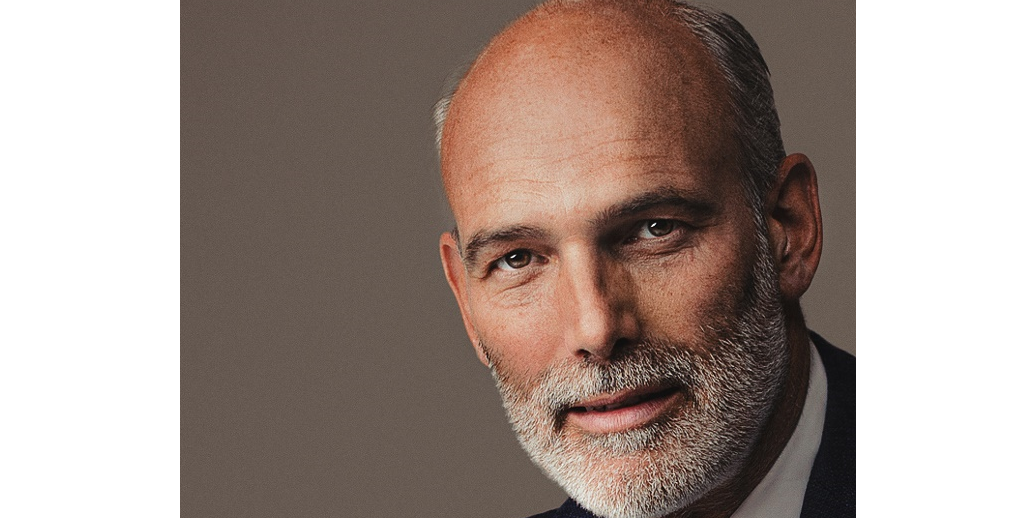 Gilead
Gilead